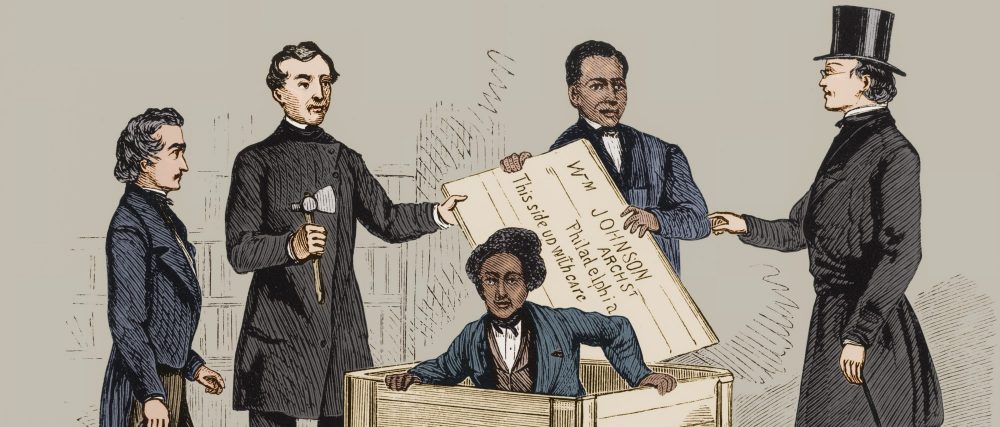Learning Objectives
In this class, students will learn to:
1. Develop historical perspectives
2. Express themselves clearly
3. Locate relevant information
4. Identify key historical issues and debates
5. Support plausible historical arguments
This course also meets the U.S. Diversity Requirement. The United States has always been and remains a place of diversity, contest and inequality. The U.S. diversity course explores the ways in which diversity has enriched and complicated our lives. The course examines the intersections of two or more of the following categories of identity in the United States: race, ethnicity, gender, class, religion, sexual orientation, and/or disability. By considering people’s lived experiences as members of dominant and subordinated groups, this course equips students to engage a complex, diverse United States.
In this course students will:
1. Gain a solid grasp of the course content
2. Become more knowledgeable about a complex and diverse United States
3. Enhance critical thinking about issues of position, power and privilege
4. Recognize the multiple identities that shape our interactions with one another
Attendance & Participation
Class attendance and participation are both required. Students who miss class for sickness or any other unexpected reason should email an explanation along with thoughtful comments about the reading assignment within a week of their absence. There is no need for providing formal excuses from someone else (parent, nurse, etc.). If you know in advance that you will miss class (for job interviews, sporting events, etc.), you need to ask permission in advance by email. Those who attend class but do not participate should try to email comments afterward. Such post-class commentary can still help your participation evaluation. More than two unexcused absences or latenesses will result in a reduction in participation grades. Repeated unexcused absences or latenesses can also result in course failure.
Electronics
No personal electronic devices such as phones, tablets or laptops can be used in this class except in rare cases with special permission in advance from Prof. Pinsker.
Accommodations for Disabilities
Dickinson values diverse types of learners and is committed to ensuring that each student is afforded equitable access to participate in all learning experiences. If you have (or think you may have) a learning difference or a disability – including a mental health, medical, or physical impairment – that would hinder your access to learning or demonstrating knowledge in this class, please contact Access and Disability Services (ADS). They will confidentially explain the accommodation request process and the type of documentation that Dean and Director Marni Jones will need to determine your eligibility for reasonable accommodations. To learn more about available supports, go to www.dickinson.edu/access, email access@dickinson.edu, call (717) 245-1734, or go to ADS in the Lower Level of Old West, Room 5.
Privacy
All student course work can be kept entirely private using the publishing protocols of WordPress. Students should prepare all of their posts with visibility set to PRIVATE. That means nobody besides Prof. Pinsker can see your work. But Prof. Pinsker will consider making your public after he evaluates it. If he publishes your post, it will appear in search engines and might get pushed out through various social media. If you don’t want your work to be considered for publication, simply opt-out by including this statement at the top: NOT FOR PUBLICATION.
Writing Center Visit
All students should consider visiting the Norman M. Eberly Multilingual Writing Center to support their writing assignments for this course. Writers of all levels and abilities need feedback in order to develop their ideas and grow as writers. Dickinson’s trained writing tutors can help you generate ideas, begin drafting, revise a rough draft, figure out your professor’s preferred documentation style, understand and respond to professor feedback, edit your writing – among other things. You can walk in or call and make an appointment at (717) 245-1620 (or 245-1767 for foreign language writing). For more information about hours and procedures, visit the web: http://www.dickinson.edu/academics/resources/writing-program/content/Writing-Center/
Plagiarism
From Dickinson College Community Standards (adopted 2006):
To plagiarize is to use without proper citation or acknowledgment the words, ideas, or work of another. Plagiarism is a form of cheating that refers to several types of unacknowledged borrowing.
- The most serious degree of plagiarism involves the wholesale and deceptive borrowing of written material from sources such as published authors, web sites, other students, or paper-for-hire services. Students who submit papers or significant sections of papers that they did not write themselves are committing this type of violation.
- Another serious degree of plagiarism involves less wholesale but still repeated and inappropriate borrowing from outside sources. In some of these cases, students borrow several phrases or sentences from others, and do so without both quotation marks and proper attributions. In other cases, students secretly collaborate on assignments in defiance of specific prohibitions outlined by their instructor.
- Finally, there is a degree of plagiarism that involves the borrowing of specific words or phrases without quotation marks. In such cases, citations may be present, but they are inadequate. This problem most commonly occurs when students paraphrase sources by attempting to change a few words in a sentence or brief series of sentences. It can also occur when students rely too heavily on parents or friends for ideas or phrases which they mistakenly claim as their own.
